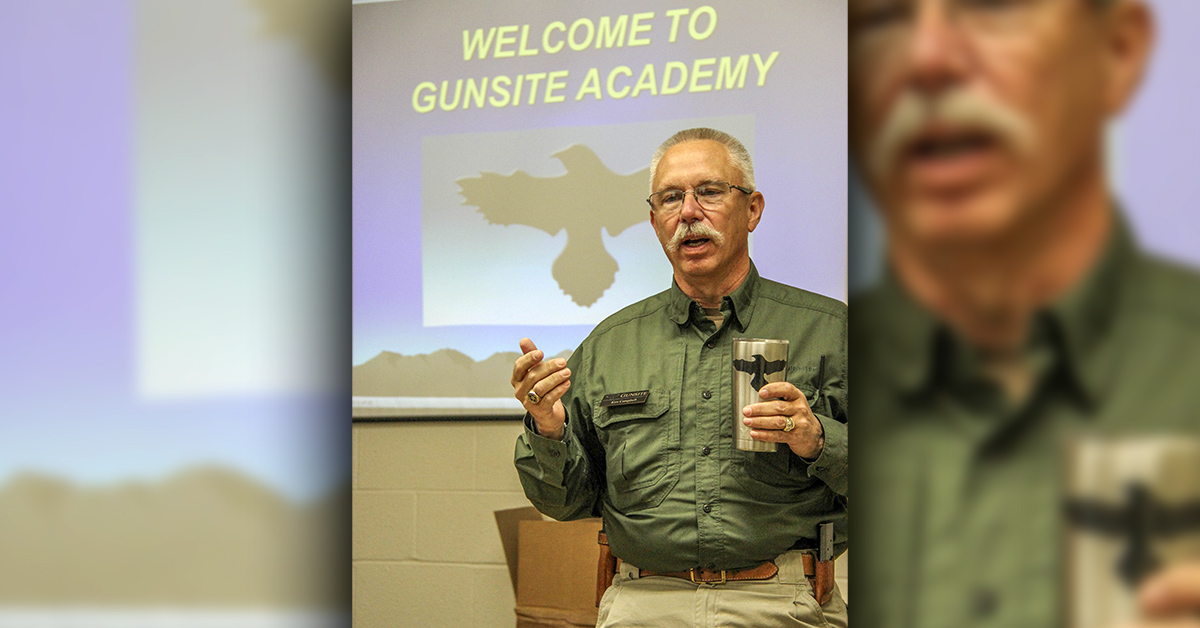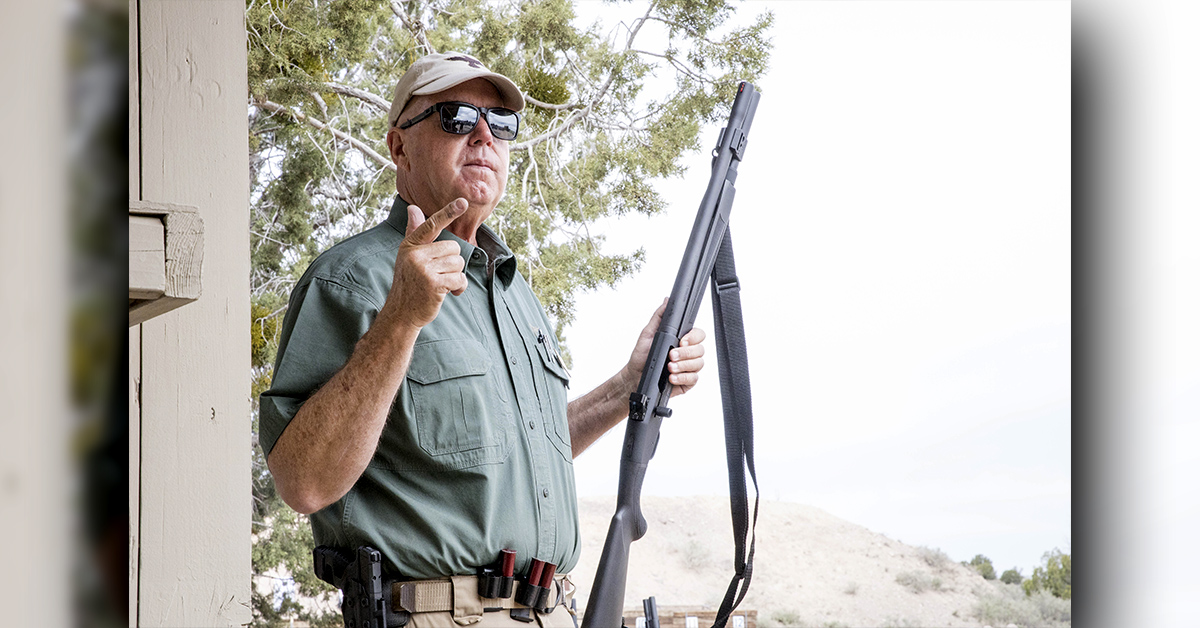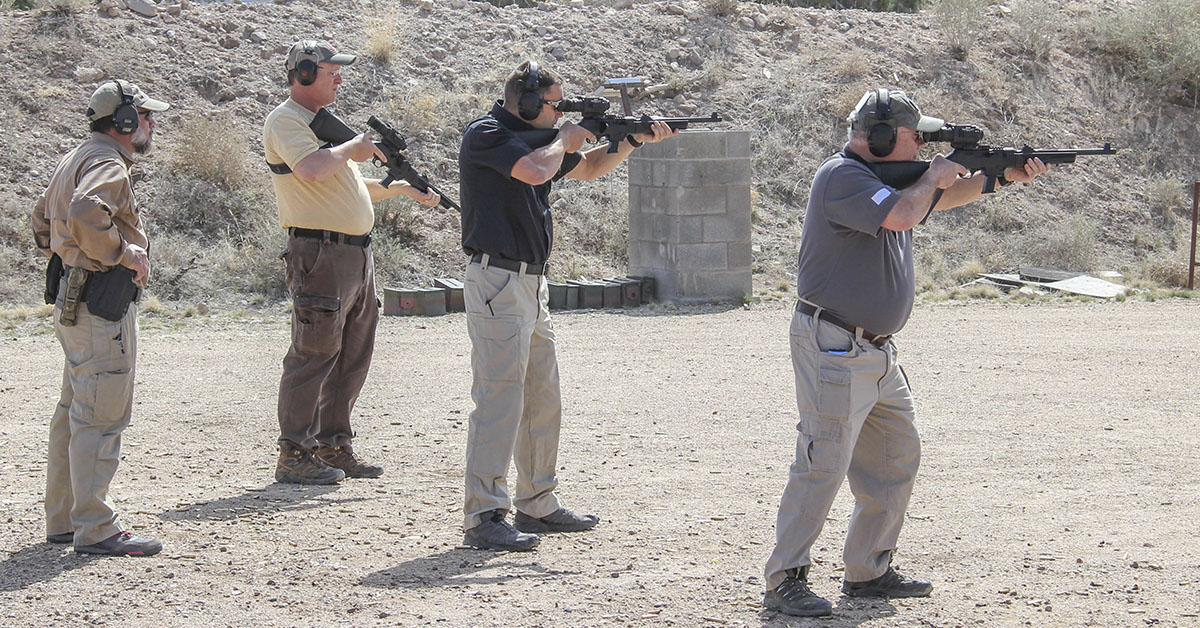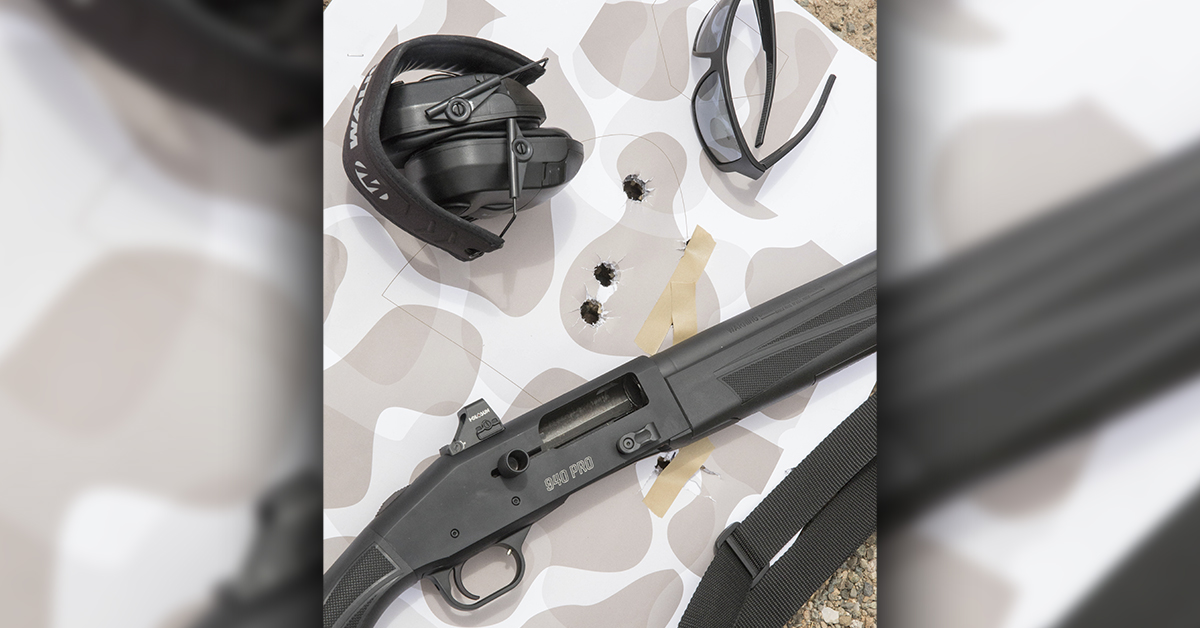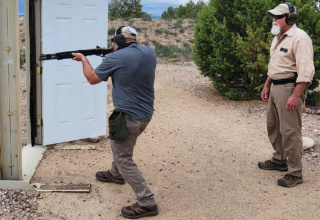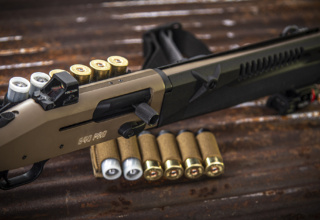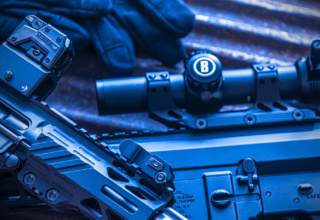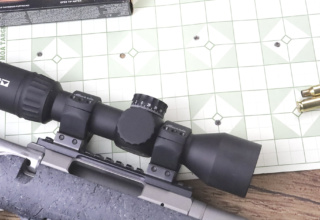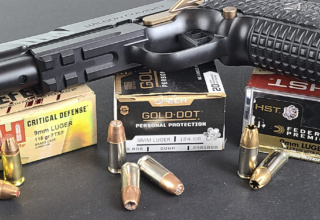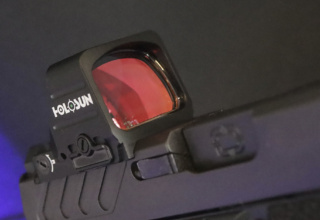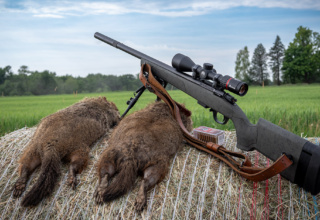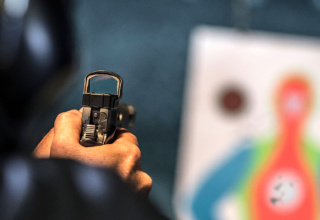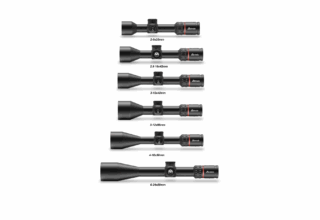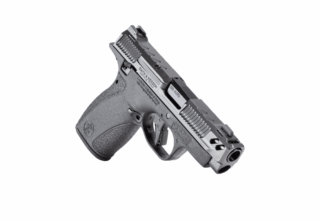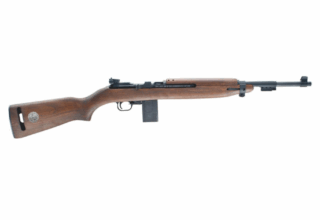You’ve invested a lot in your guns, now invest in making yourself a better shooter
by Brad Fitzpatrick
Many handgun owners are intensely loyal to their beloved brands, advertising for their favorite firearm on their hat, tee-shirt, or pick-up truck. But the truth is there are many reliable defense pistols from which to choose, and so long as you keep most modern carry pistols in good working order and feed them proper ammunition, they’ll work without a hitch.
The same, though, cannot be said of shooters. The truth is that our guns perform more reliably than their owners, and that’s especially true in a real life-or-death struggle where elevated stress levels can cause us to forget the fundamentals of accurate shooting. No matter how much you like your favorite firearm, a weapon is only as good as the shooter, and a shooter is only as good as their training.
That’s why it’s a good idea to invest in next-level training. Regardless of the discipline or the shooter’s skill level, spending time with an experienced trainer will help you perform better with a firearm, even (and perhaps especially) in stressful situations.
What the Pros Know
I recently returned from FTW Ranch in Texas where I completed their Sportsman’s All-Terrain, All-Weather marksmanship (SAAM) course. FTW is a favorite destination for serious international big game hunters as well as competitive shooters and military and law enforcement professionals, and I had time to sit down with owner and CEO Tim Fallon to ask him questions about his shooting program and what is required to perform well with a firearm when the stakes are high.
Surprisingly, Fallon refers to his training as “a way.” As in, “a way,” to shoot this target, but perhaps not the only way. There are multiple methods that work in most instances, but one area that Fallon emphasizes is the need to continue training and improving your skill set even when you believe you’ve mastered the discipline.
“When Jordan Spieth wins a major golf tournament, do you know where he is the following week?” Fallon asked. “He’s with his hitting coach. He’s one of the best golfers on the planet and the first place he goes is back to his coach.”
My best firearm-related investment has been the next-level training I have received because it has provided me with tips to help improve my skillset and challenged me to improve my performance with a gun. More importantly, the best shooting schools I’ve attended have required me to perform under duress. Next-level training shouldn’t be easy. On the contrary, it should push you beyond your comfort level (safely, of course) so that you are better prepared to accomplish the task at hand, whether that’s winning a PRS match or surviving a violent attack.
The Hallmarks of Good Firearms Training
To be clear, there are lots of firearms courses and lots of firearms instructors. Some of these courses are a waste of your time, and some only serve to stoke the ego of the trainer who may or may not know much about the subject matter. I’ve seen these blowhard trainers firsthand, sat through their classes, even stood side-by-side with a few of them. Frankly, their courses aren’t worth attending, and you’d be better served buying a few cases of ammunition and a new holster and spending time alone at the range.
Not all courses are like that. Some shooting classes are very good, and you’ll walk away from them a much better shooter with a much clearer understanding of what you need to do to continue to improve your shooting. But how can you spot the difference between good classes and bad?
Normally, established shooting courses have proven that their methods and methodologies work. Arizona’s Gunsite Academy (formerly the American Pistol Institute, which was founded by Colonel Jeff Cooper over 40 years ago), The Site in Mount Carroll, Illinois, and FTW Ranch are all examples of shooting schools that have proven track records of performance because their students routinely perform at a high level and return for continued training. But shooting courses at lesser-known destinations and small venues will work if they offer the following to their students:
Safety – It seems axiomatic that firearms courses should be safe, but that isn’t always the case. Bizarre and unforeseeable accidents can and occasionally do occur even in the best courses, but these are a result of sheer bad luck and not negligence on the part of the instructor. Safety is always top priority.
Personalized Instruction – The best courses keep class sizes relatively small so that each student receives the training that they need. Safety becomes an issue when the student-to-instructor ratios become too large and students’ mistakes go unnoticed by overtaxed instructors. The number of students that a single instructor can effectively observe at one time varies, but once the ratio of students-to-teacher exceeds 5:1, things seem to go downhill quickly.
A Defined Curriculum – Good shooting courses offer a defined curriculum with a list of skill sets and concepts that should be mastered, and these courses generally follow the same curriculum from one session to the next. Bad courses, though, seem to have no definitive path forward and the class may stray widely off topic. Before the course starts, the instructors should have a clear understanding of the objectives so that they can be certain students achieve what they need.
A Student-First Approach – No shooting course should serve as a vehicle to bolster the ego of the instructor, but some do. And, generally speaking, these classes are terrible. Student advancement should be a top priority, second only to safety. The best coaches and instructors can recognize their students’ skill levels and help the students improve from there, whether they are new shooters mastering the operation of their firearm or top competitors who need to refine their tactics to improve match scores. A student-first approach does not mean that the student will never be challenged, though, and some very good courses are also very difficult.
A Worthy Investment
The mechanical operation of a firearm is generally the simplest skillset to obtain in a shooting course. In a few hours, even a rank beginner can, with proper instruction, learn to safely operate a revolver. A semi-auto pistol make take longer to learn to operate, but it can still be accomplished during one day of instruction. Refining sight picture, mastering reloads, and trigger control are skills that take longer to develop.
The mechanical aspects of self-defense are fairly straightforward and easy to learn. But the more complex skill of applying your shooting ability to a life-and-death situation is tougher to master. For example, while attending Gunsite’s Team Tactics course, my shooting partner Alex Landeen and I managed to operate the guns on the range without issue. But when we were asked to apply our basic self-defense knowledge to real-life scenarios (we were using Airsoft firearms and wearing protective gear) in a restaurant setting, everything went badly. Our mechanics were fine (we both hit the attacker in the chest with shots from our Airsoft weapons), but we neglected to recognize the open doorway behind us that would have allowed us to escape the situation without firing a shot.
It’s the mind that’s being exercised most in the best shooting courses. You’re building a skillset with your firearm, yes, but you’re also building a portfolio of experiences that may help you survive a violent encounter. That’s the real benefit of these courses, and it’s why they are a worthwhile investment.
- TESTED: Steiner H6Xi 2-12x42mm RFP Riflescope - April 25, 2025
- Best Bets in 9mm Defensive Ammo - April 21, 2025
- Why Red Dots Became Standard on Handguns - March 10, 2025

